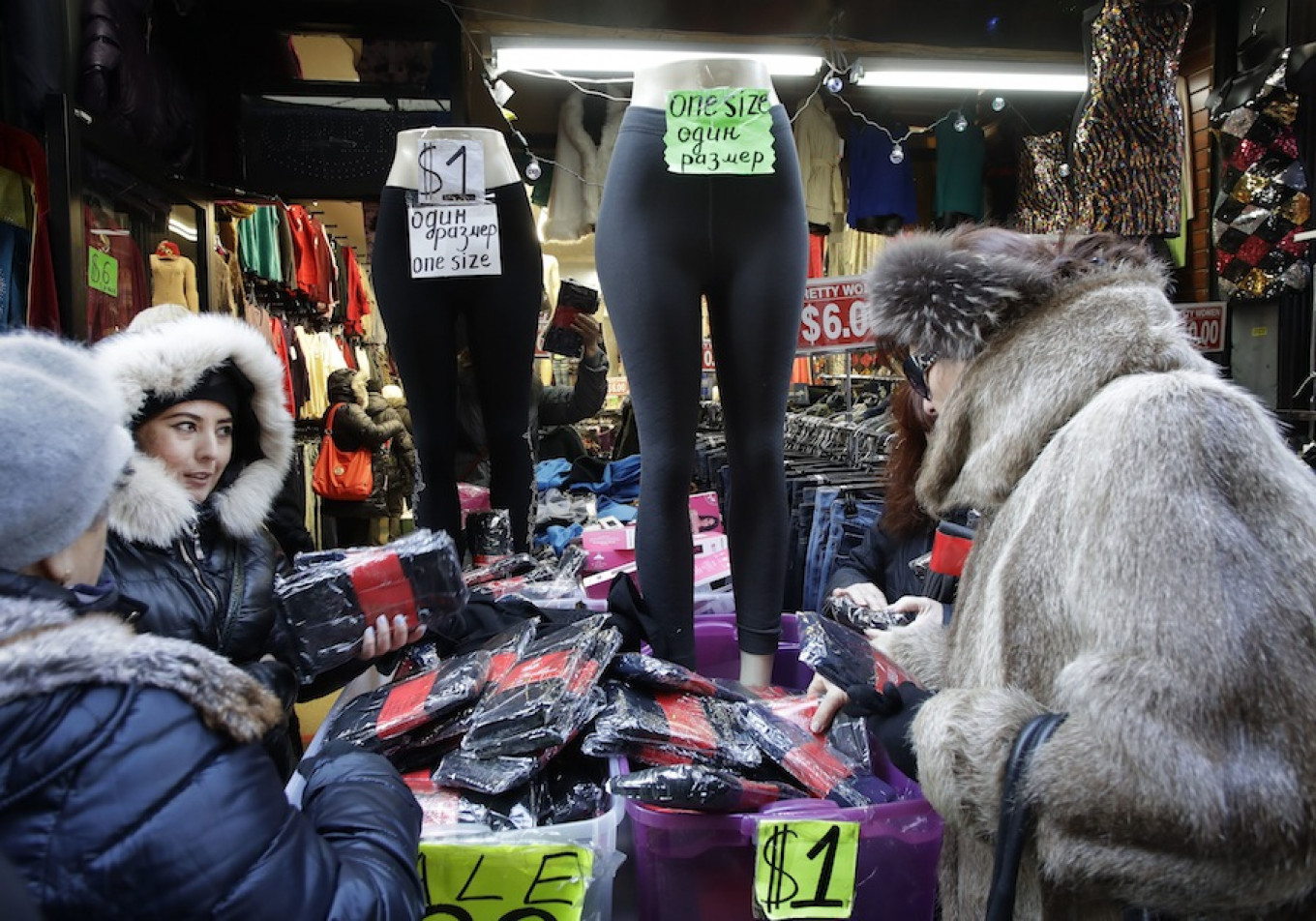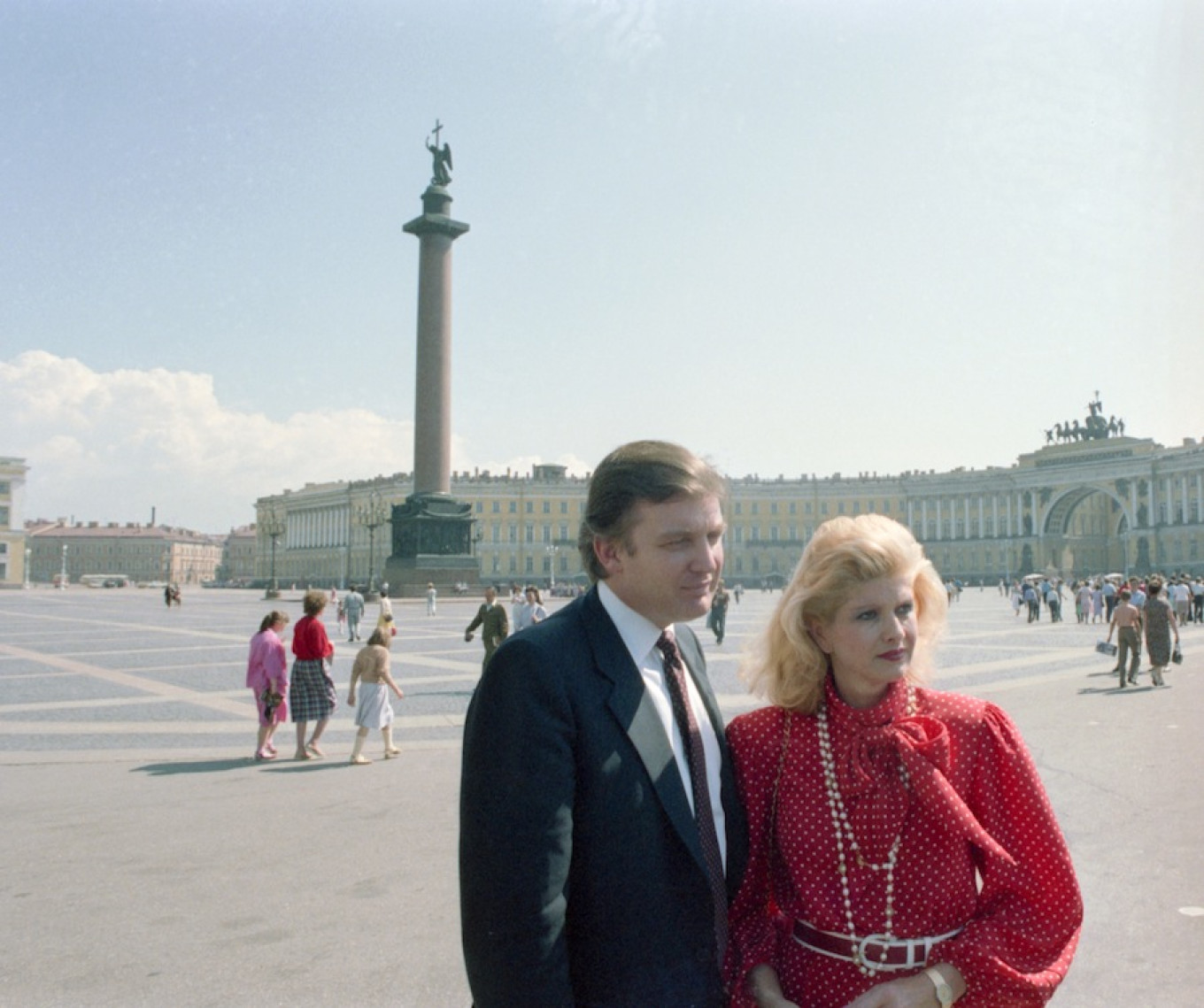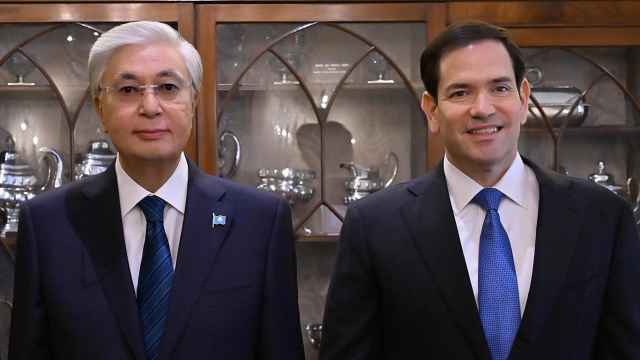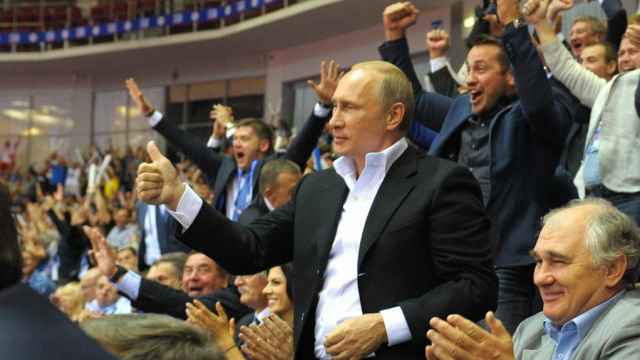In 1989, Igor Yarmak was one of the last Jewish refuseniks – people denied the right to emigrate from the Soviet Union – in Kiev, Ukraine. A year later, Yarmak finally received an exit visa and left for the United States. In the ensuing quarter century, he has built a new life for himself in New York City, working in the IT industry.
This year, however, Yarmak found himself doing the refusing: Unlike many of his friends and family, he could not bring himself to vote for Donald Trump for president.
“I think Donald Trump doesn’t have any real convictions,” he says. “He’s an opportunist: He’ll say whatever needs to be said to please his audience.”
Yarmak is in the minority in his community. Since immigrating to the United States, Soviet and Russian-speaking immigrants have grown into a faithful Republican voting bloc. Often Jewish and highly educated, many Soviet immigrants have achieved professional success in America. They frequently identify with the Republican Party’s narrative of self-reliance and opposition to the welfare state, and view the Democratic Party’s policies as socialism lite.
For these immigrants, Trump – a real estate mogul made famous in the 1980s, when many Soviet immigrants arrived – appears the embodiment of the “American Dream.”
In the run-up to the Nov. 8 presidential election, these attitudes attracted significant attention in the U.S. press. A series of trend pieces presented Russian-speaking enclaves of New York City as monolithic bastions of Trump support.
But many Soviet immigrants say the situation is more complicated. In the wake of Trump’s electoral victory, they are horrified that their own community – with its experiences of anti-Semitism and totalitarianism – could support a candidate they believe ran on an openly xenophobic and populist platform. The community now finds itself increasingly divided over politics, they say.

We’re Not Alone
Soviet immigrants interviewed by The Moscow Times have described fights between parents and their children, unpleasant arguments among relatives during Thanksgiving dinner, and a growing sense of disappointment with family and friends. One man, who declined to go on the record, even shared online correspondence in which he unsuccessfully attempted to reason with family friends and convince them not to vote for Trump.
“For context, these aren’t your average babushkas,” he wrote, referring to Russian grandmothers. “These are top scientists at a major pharmaceutical company.”
Trump’s victory has also been a wakeup call for many Soviet immigrants. In the aftermath of the election, Olga Tomchin, a human rights lawyer and former Jewish refugee from Minsk, Belarus, decided she needed to take action.
“I saw so many calls from communities of color for people to go and organize their own communities,” she says. “I decided if I don’t do something, no one else will.”
Tomchin founded a Facebook group called “Anti-Trump Soviet Immigrants.” Nearly two months later, the group has over 1,200 members, and is one of three Facebook communities uniting Russian-speaking immigrant opponents of the U.S. president-elect.
Opposition to Trump among Soviet immigrants should not be surprising, says Samantha Shokin, a group member who has blogged about divides in the Russian-speaking Jewish community. She believes the community is changing.
Born in Brooklyn, New York to recent immigrants from the Soviet Union, Shokin observed generational differences first hand. Jewish immigrants often struggled to get past quotas restricting the number of Jews allowed in Soviet universities. In America, they strongly value education and send their children to top universities, where political attitudes are quite progressive.
“If you go to a top-tier university in the U.S., you get a pretty liberal education,” Shokin says. “These kids come back and they question their parents’ beliefs. It’s a generation gap.”
Shokin and others interviewed by The Moscow Times also felt that the discussion of Soviet immigrants’ voting patterns has focused too much on Brighton Beach. While the Brooklyn suburb is the most famous Russian-speaking enclave in New York, it is also an insulated community with a large number of elderly people.
Mike Oganov, an immigrant who grew up in Baku, Yerevan, and Moscow, believes that one’s level of integration has a major effect on political beliefs.
“In Seattle, where I live, a lot of Russian-speaking immigrants are highly educated and work in tech companies,” he says. “They don’t live in a separate neighborhood, they speak good English, and they are integrated into the wider city.”
Shokin and Oganov may be onto something. In October, the Russian-Speaking Americans Research Group, a recently formed collective of Russian non-profits and media companies in the U.S., carried out a survey of voting attitudes among 265 Russian-speaking Americans across 25 states.
They
found that only 53.3 percent of intended voters planned to cast their
ballot for Donald Trump – a figure lower than many in the community
would guess – while 24.4 percent supported Hillary Clinton and 20
percent were undecided. They also found slightly higher support for both
candidates among younger voters, and increased support for Clinton in
swing states – many of which do not traditionally have large Russian
communities.

Talking with Babushka
However, for those anti-Trump Soviet immigrants with conservative older relatives, explaining their political views often seems like an impossible task.
But Sasha Senderovich, an assistant professor of Russian Studies and Jewish Studies at the University of Colorado Boulder, says the generational divide is not insurmountable. In the runup to the election, Senderovich, who came to the U.S. from Russia at 16, convinced his pro-Trump grandmother to cast her ballot for Hillary Clinton.
He did this by framing his arguments against Trump in the context of her life experiences. To argue against anti-Muslim and anti-immigrant rhetoric that emerged during the Trump campaign, Senderovich reminded her of Muslim friends she had in Russia and of her own experiences of anti-Semitism in the USSR. He also explained how Trump’s policies could negatively affect Medicare and Social Security benefits she and her friends depend upon.
However, this approach must begin with self-education about the Soviet and Soviet-Jewish experiences, Senderovich says.
“If you’re interested in speaking to your older relatives, it’s important to understand what their vantage point is,” he says. “Otherwise the discussion gets hijacked by people who claim to know better.”
Judging by comments in the three Facebook groups, where members often vent their frustrations after difficult political discussions with relatives, the problem appears to be that people draw vastly different conclusions from the Soviet experience. For many, Soviet memories and experiences of anti-Semitism motivate their opposition to the social safety net and concerns about immigrants from the Middle East.
Others use the same experience to come to different conclusions.
“I came from the evil empire,” says Igor Yarmak, quoting Reagan’s name for the USSR. “This is a nation of immigrants. You can’t say ‘I already came’ and then close the door for others.”
A Message from The Moscow Times:
Dear readers,
We are facing unprecedented challenges. Russia's Prosecutor General's Office has designated The Moscow Times as an "undesirable" organization, criminalizing our work and putting our staff at risk of prosecution. This follows our earlier unjust labeling as a "foreign agent."
These actions are direct attempts to silence independent journalism in Russia. The authorities claim our work "discredits the decisions of the Russian leadership." We see things differently: we strive to provide accurate, unbiased reporting on Russia.
We, the journalists of The Moscow Times, refuse to be silenced. But to continue our work, we need your help.
Your support, no matter how small, makes a world of difference. If you can, please support us monthly starting from just $2. It's quick to set up, and every contribution makes a significant impact.
By supporting The Moscow Times, you're defending open, independent journalism in the face of repression. Thank you for standing with us.
Remind me later.






